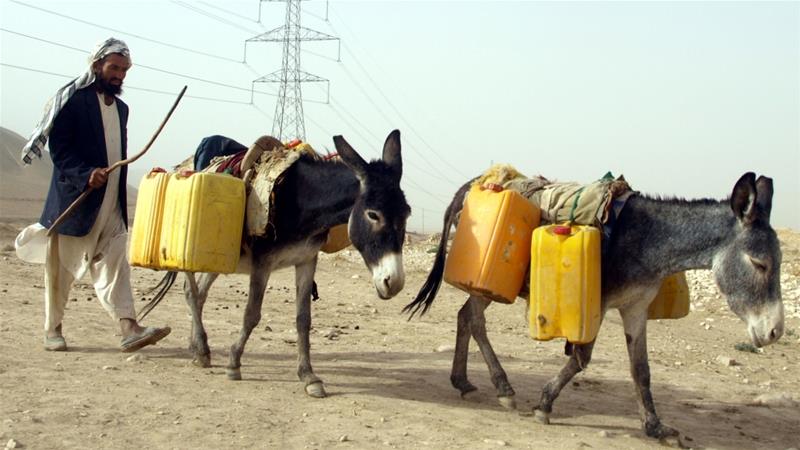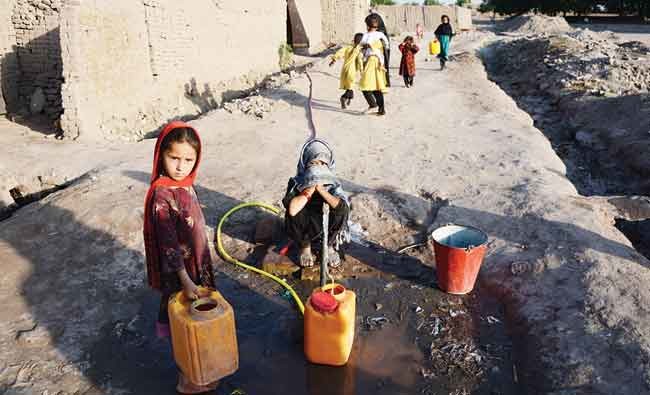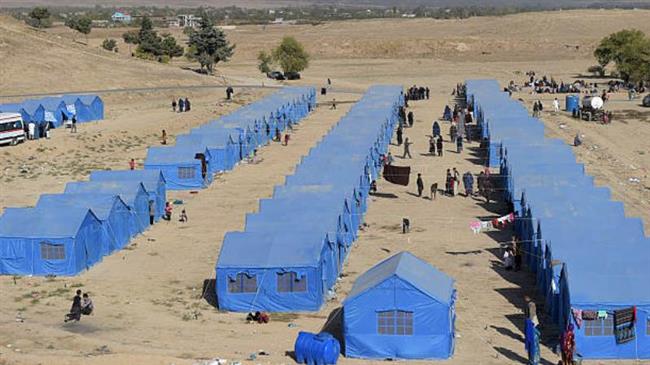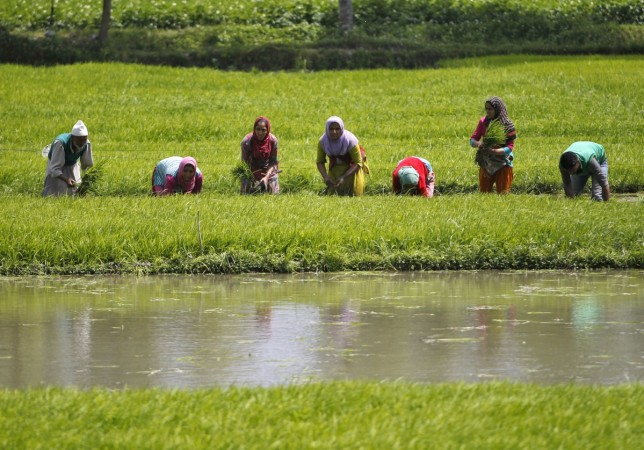More than the two million Afghans affected as La Nina has devastating effect on the planting season.
Publish dateMonday 24 December 2018 - 00:14
Story Code : 176492
AVA- Afghans are facing water shortages due to the persistent drought that has ravaged the country this year.
In many places, including the capital Kabul, local residents have to carry containers to fill at water points several times a day.
''Water used to be available 24 hours every day, but now it is only available three to four hours. More than 500 families gather here to get water during these few hours,'' said Sayed Ali, a local resident.
In the past year, the amount of precipitation dropped by more than 50 percent compared with that of average levels in most parts of Afghanistan. Sixteen out of 34 provinces are suffering from drought.
This year is even worse. La Nina has had a devastating effect on the planting season, with a rain, snow and sleet deficit of 70 percent prevailing across most of the country.
In the 20 provinces most affected by the drought, nearly 15 million people rely on farming, livestock or labour opportunities in agriculture. Of these, an estimated 2 million people will become severely food insecure due to the drought.
According to the Afghanistan National Disaster Management Authority, about two million Afghans have been affected by the drought. Years of conflict have damaged the country's infrastructure, making the situation even worse.
''Afghanistan lacks infrastructure. The construction of water projects including dams has been slow. So when water flows past Afghanistan, there is no way to store it and just let it flow right into neighbouring countries,'' said Aslam Sayas, the deputy director of Afghanistan National Disaster Management Authority.
Local media say the drought has caused a fall in crop production in the western and northern parts of Afghanistan, and people in these areas are on the edge of famine.
The total displacement due to the drought has now reached 275,000 people.
In many places, including the capital Kabul, local residents have to carry containers to fill at water points several times a day.
''Water used to be available 24 hours every day, but now it is only available three to four hours. More than 500 families gather here to get water during these few hours,'' said Sayed Ali, a local resident.
In the past year, the amount of precipitation dropped by more than 50 percent compared with that of average levels in most parts of Afghanistan. Sixteen out of 34 provinces are suffering from drought.
This year is even worse. La Nina has had a devastating effect on the planting season, with a rain, snow and sleet deficit of 70 percent prevailing across most of the country.
In the 20 provinces most affected by the drought, nearly 15 million people rely on farming, livestock or labour opportunities in agriculture. Of these, an estimated 2 million people will become severely food insecure due to the drought.
According to the Afghanistan National Disaster Management Authority, about two million Afghans have been affected by the drought. Years of conflict have damaged the country's infrastructure, making the situation even worse.
''Afghanistan lacks infrastructure. The construction of water projects including dams has been slow. So when water flows past Afghanistan, there is no way to store it and just let it flow right into neighbouring countries,'' said Aslam Sayas, the deputy director of Afghanistan National Disaster Management Authority.
Local media say the drought has caused a fall in crop production in the western and northern parts of Afghanistan, and people in these areas are on the edge of famine.
The total displacement due to the drought has now reached 275,000 people.
Source : خبرگزاری Afghn Voice Agency(AVA)
avapress.com/vdci3qazrt1ay52.ilct.html
Tags
Top hits












